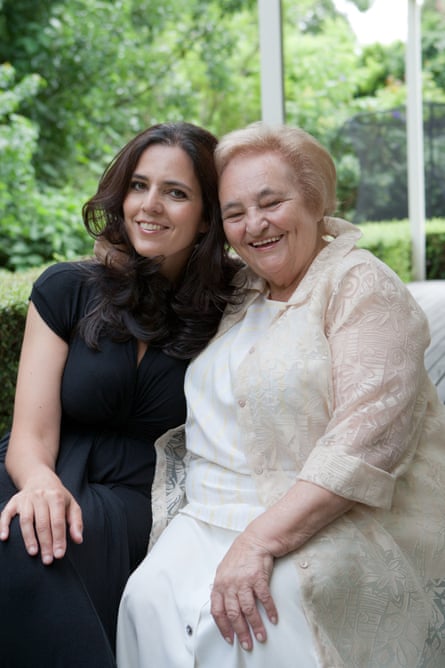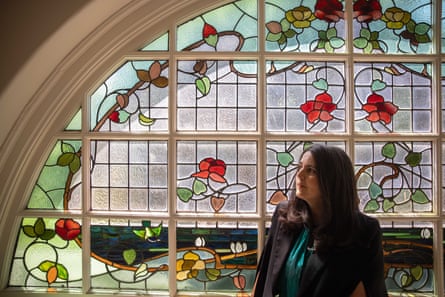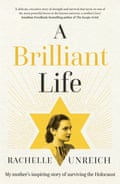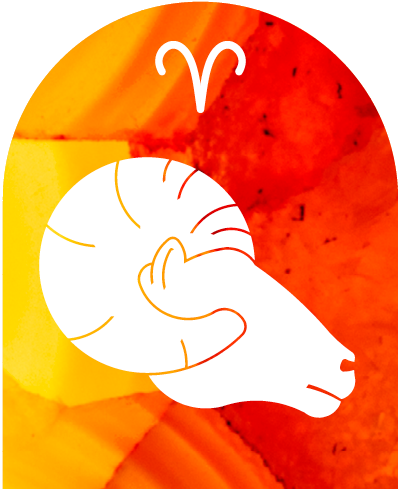
Despite being a journalist, I had never thought to do it before. But as my mother, Mira, drew closer to the end, I interviewed her. I wanted to distract her from the aches, the nausea, the tiredness. I wanted to distract myself from it too.
By that time I was exhausted from her routine and my part in it: I feigned a smile as I helped balance Mira’s ill-fitting wig on her head; I came to her house with mobility aids and bland home-cooked soups, each time proffering them like a bunch of flowers. As her illness progressed, my mother started to move further away from who I’d known her to be. Her skin became dull; her voice duller still.
I wanted to be reminded of my real mother, not this woman who sat in her place. I wanted to see a glimpse of the parent I’d known all my life, who was vital and formidable; who spoke seven languages and sometimes said such hilarious things that I’d steal them as fodder later on. With her illness, it was as if a house of mirrors had settled over our lives, everything appearing askew. Mira still lived in the only family home I’d known, but now my childhood memories became mixed up with her sickness. When I walked into her kitchen, I couldn’t conjure up her almond horseshoe biscuits, once filling a ceramic jar. Vials of ugly drugs stood in their place.
I started interviewing her with some reserve. Didn’t I already know her story? I certainly knew things she had experienced during her lifetime: she was a Holocaust survivor, and I’d watched hours of her recorded testimonies. Plus, I knew so much more: that she liked to drink black coffee with a sugar cube resting on her tongue; that she played a competitive card game of red aces and spoke to strangers in the street who seemed magically drawn to her. The scent of her (Taft hairspray and Estee Lauder’s Private Collection perfume), the sound of her tinkling laughter, the way she felt when I hugged her tightly – these were all imprinted on me. I knew her, I thought, like I knew myself.
Only, it would become apparent, I didn’t. Early on in our sessions I asked her about my father, who had passed away a decade earlier. I had my own views on their marriage, which I would have described as companionable at best. But Mira surprised me. “I was very much in love with Daddy,” she said. “He used to leave little cards with messages on the car window. He always made me feel like I counted so much in my life.”

I would not have known that. It did not take long to realise that there were yawning gaps between my own experience of Mira as a parent, and the truth of her life. The important details were not in the elements I already held close, but in the spaces between them. There was beauty, it would turn out, in her final months, when the clothes she wore became looser, and her skin became greyer. Amidst her deterioration I got to feed her soup by the spoonful, and dab her face with a warm cloth. The more childlike she became in her dependency, losing the ability to control her body and its functions, the more tenderly I felt towards her. When she slept, I’d stroke her hand gently and I’d remember that she had done the same for me when I was little. Sometimes she struggled to nod off and I would whisper words of love to her: “Thank you for everything.” It was not unlike those times she would sing to me as a baby, cooing the words of Yves Montand’s popular song: “Amour, mon cher amour.”

Were we unlucky, or lucky, to have these final months? A friend was grateful when his father suffered a fatal heart attack while holidaying overseas, his heart no longer beating by the time he fell to the marble floor of his favourite hotel. By contrast, my mother suffered, I know, but this was not a constant. Alongside her slow decline lie memories I do not want to forget. My son came to sing his barmitzvah prayers for her, knowing she would not be there to see him on the day. Mira’s four children surrounded her, singing hymns into her ear as we cried. And there were not just gentle goodbyes, but fervent hellos, each time we opened her front door and realised we had been given at least another day with her.
It is such a momentous task to mother someone, and I felt the circularity of that gift when I was able to return it to Mira. I was often aware of the honour bestowed on me in those final months.



